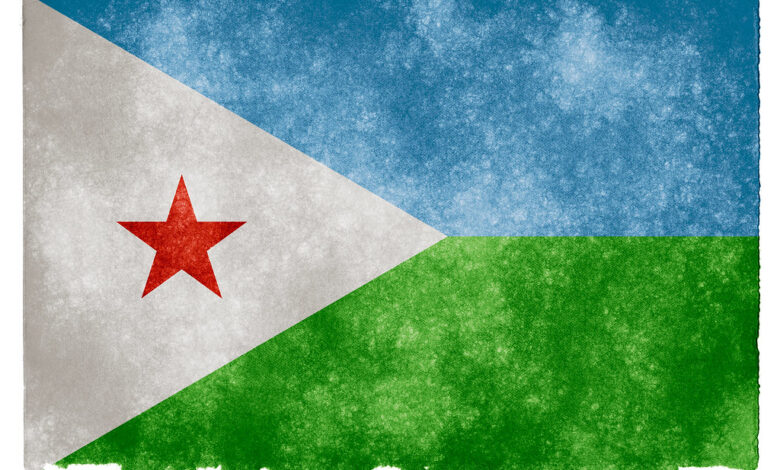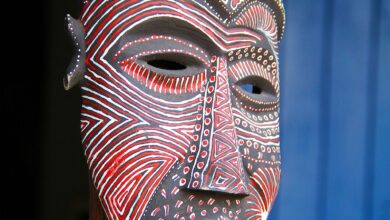Djibouti Facts, History, Culture & Travel – Africa Facts Zone
A Jewel in the Horn of Africa

Djibouti Overview
Djibouti: Country in the Horn of Africa
Location: Bordered by Somalia to the south, Ethiopia to the southwest, Eritrea in the north, and the Red Sea and the Gulf of Aden to the east.
Capital and Largest City: Djibouti City
Population: 976,143 (2023 estimate)
Official Languages: Arabic, French
Ethnic Exploring Djibouti: A Jewel in the Horn of Africa Groups
Somalis (60%), Afar (35%), Arabs (5%)
Independence: From France on 27 June 1977
Economy: GDP (PPP) – $7.193 billion; GDP (Nominal) – $3.873 billion (2023 estimates)
Exploring Djibouti: A Jewel in the Horn of Africa
Djibouti, a small yet strategically significant country in the Horn of Africa, often gets overlooked in discussions about global geopolitics and travel destinations.
However, its unique culture, rich history, and breathtaking landscapes make it a fascinating place to explore. In this article, we will delve into Djibouti’s geography, history, culture, economy, and more, providing a comprehensive overview of this intriguing nation.
Geographical Overview
Location and Landscape
Djibouti is situated at the southern entrance of the Red Sea, bordered by Somalia to the south, Ethiopia to the west, and Eritrea to the north.
Covering an area of approximately 23,200 square kilometres (about the size of New Jersey), Djibouti boasts a diverse landscape that includes:
- Mountain Ranges: The country is home to several mountain ranges, with Mount Moussa Ali being the highest peak at 2,028 meters (6,654 feet).
- Deserts and Plateaus: The Grand Bara desert covers significant portions of southern Djibouti, while the terrain consists mainly of plateaus and highlands.
- Coastline: Djibouti’s coastline is 314 kilometres (195 miles) along the Gulf of Aden and the Red Sea, making it a crucial maritime hub.
Also Read: The Republic of Chad Facts, History, Culture & Travel – Africa Facts Zone
Climate
Djibouti experiences a sub-tropical desert climate, characterized by:
- Hot and Arid Conditions: Temperatures can soar above 40°C (104°F) in the summer months, while the winter months see milder temperatures ranging from 23°C to 30°C (73°F to 86°F).
- Limited Rainfall: The country receives minimal rainfall, with November being the wettest month, averaging only five days of rain.
Historical Context
Colonial Legacy
Djibouti’s history is marked by its colonial past. Originally part of the ancient Land of Punt, the region later became known as French Somaliland in the late 19th century.
It gained independence from France on June 27, 1977, and was subsequently named the Republic of Djibouti.
Post-Independence Struggles
Following independence, Djibouti faced internal conflicts and political instability. The early 1990s saw tensions over government representation, leading to armed conflict.
A power-sharing agreement in 2000 helped stabilize the country, paving the way for a multiparty republic.
Cultural Richness
Diverse Population
Djibouti is a melting pot of cultures, with a population of approximately 1 million people. The major ethnic groups include:
- Somalis: The largest ethnic group, primarily inhabiting the coastal areas.
- Afar: Another significant group mainly resides in the inland regions.
- Other Minorities: Including Arabs, French, and various other ethnicities.
Languages and Religion
- Official Languages: French and Arabic, with Somali and Afar recognized as national languages.
- Religion: Approximately 94% of the population adheres to Islam, which plays a crucial role in the country’s cultural and social life.
Cuisine and Traditions
Djiboutian cuisine reflects its diverse cultural influences, featuring dishes that blend African and French flavours. Some popular dishes include:
- Roast Lamb: Often served with a rich yoghurt sauce.
- Lentil Stew: A staple in many households.
- Futa: Traditional sarong-like garments made from colourful textiles, commonly worn by both men and women.
Festivals and Celebrations
Djibouti celebrates a variety of festivals throughout the year, with major events including:
- Independence Day: Celebrated on June 27, marking the country’s liberation from French colonial rule.
- Muslim Holidays: Such as ʿĪd al-Fiṭr and ʿĪd al-Aḍḥā, which are observed with great enthusiasm.
Economic Landscape
Strategic Importance
Djibouti’s location at the crossroads of major shipping routes makes it a vital commercial hub. The country serves as:
- A Major Port: Djibouti’s port is the principal maritime gateway for neighbouring Ethiopia, facilitating trade and commerce.
- Military Bases: Various foreign military bases have been established in Djibouti, enhancing their geopolitical significance.
Economic Challenges and Opportunities
Despite its strategic advantages, Djibouti faces economic challenges, including:
- Limited Natural Resources: The country relies heavily on its port and logistics services, with agriculture playing a minimal role in the economy.
- Water Scarcity: Djibouti has the most water scarcity globally, making water management a critical issue.
However, there are opportunities for growth:
- Geothermal Energy: Djibouti has significant geothermal potential, estimated at around 1,000 MW, which could transform its energy landscape.
- Infrastructure Development: Ongoing investments in infrastructure, including the Horn of Africa Pipeline, aim to bolster economic growth and connectivity.
Tourism Potential
Attractions in Djibouti
Djibouti offers a range of attractions for adventurous travellers, including:
- Lake Assal: The lowest point in Africa, located 155 meters below sea level, is known for its stunning salt flats and unique geological features.
- Khor Ambado Beach: A beautiful beach destination ideal for relaxation and water activities.
- Day Forest National Park: Home to diverse flora and fauna, perfect for hiking and nature enthusiasts.
Also Read: Exploring the Enigmatic Comoros Facts, History, Culture & Travel – Africa Facts Zone
Adventure Activities
For those seeking adventure, Djibouti provides opportunities for:
- Diving and Snorkeling: The rich marine life in the waters surrounding Djibouti is a haven for divers.
- Trekking: Exploring the rugged terrain and mountain ranges offers breathtaking views and a chance to connect with nature.
Conclusion
Djibouti may be small in size, but its impact on the regional and global stage is significant. With its rich history, diverse culture, and strategic location, Djibouti stands out as a unique destination worth exploring.
Whether you’re interested in its vibrant markets, stunning landscapes, or the warmth of its people, Djibouti promises an unforgettable experience.
FAQs about Djibouti
What is the capital of Djibouti?
The capital of Djibouti is Djibouti City.
What languages are spoken in Djibouti?
The official languages are French and Arabic, and Somali and Afar are also widely spoken.
What is the currency used in Djibouti?
The currency is the Djibouti Franc (DJF).
Is Djibouti a safe place to visit?
Djibouti is generally considered safe for tourists, but it’s always advisable to stay informed about local conditions.
What are the main economic activities in Djibouti?
The economy is primarily driven by port services, logistics, and military bases.
What is the climate like in Djibouti?
Djibouti has a sub-tropical desert climate, with hot summers and mild winters.
What are some popular dishes in Djibouti?
Popular dishes include roast lamb, lentil stew, and various seafood specialities.
By exploring Djibouti, travellers can uncover a wealth of history, culture, and natural beauty that is often overlooked. Whether you’re a history buff, a culture enthusiast, or an adventure seeker, Djibouti has something to offer everyone.





